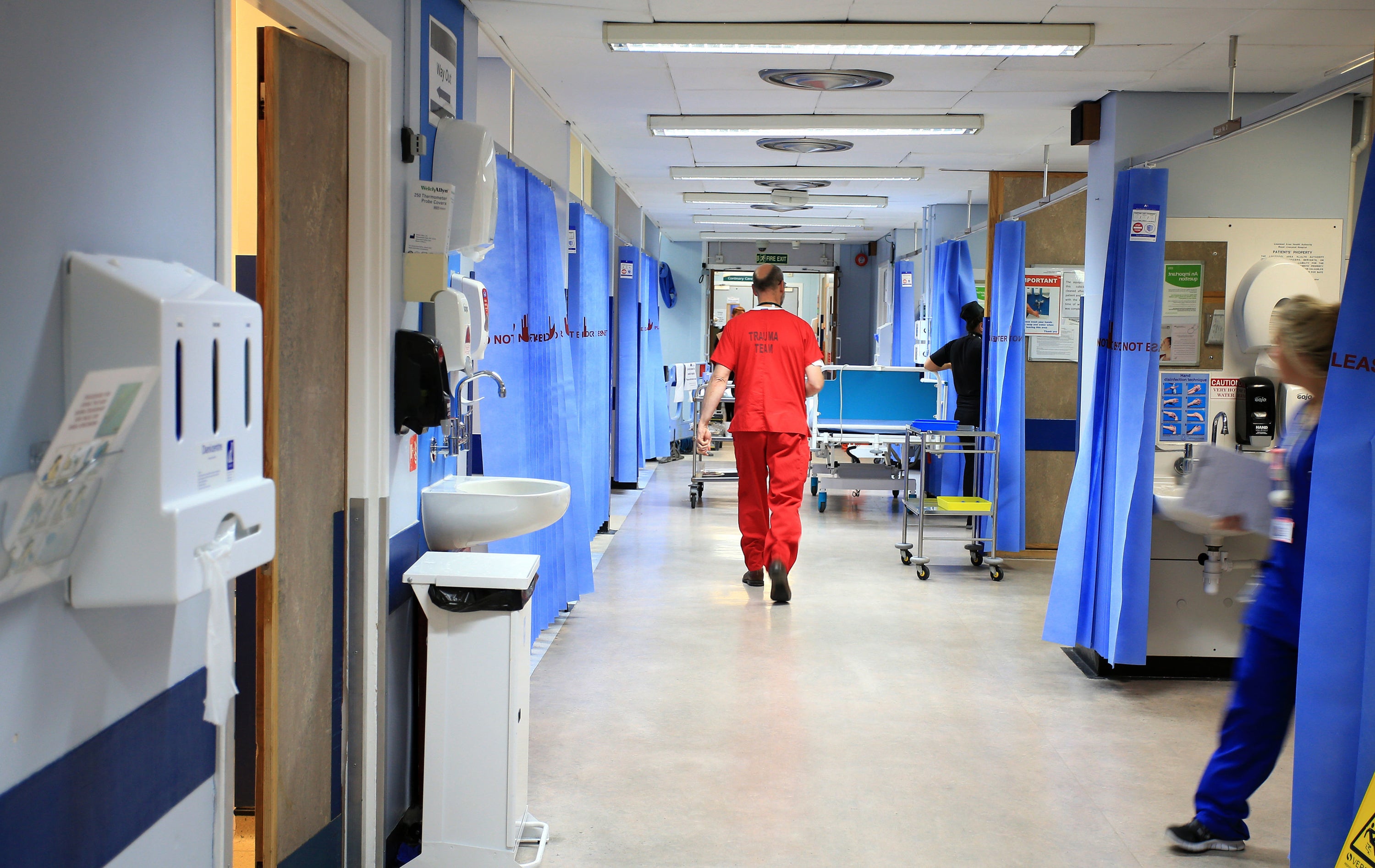Urgent call to reverse shortage of doctors in Scotland
The British Medical Association said action needs to be taken to hire more doctors to reduce the workload of those currently practicing.

Your support helps us to tell the story
From reproductive rights to climate change to Big Tech, The Independent is on the ground when the story is developing. Whether it's investigating the financials of Elon Musk's pro-Trump PAC or producing our latest documentary, 'The A Word', which shines a light on the American women fighting for reproductive rights, we know how important it is to parse out the facts from the messaging.
At such a critical moment in US history, we need reporters on the ground. Your donation allows us to keep sending journalists to speak to both sides of the story.
The Independent is trusted by Americans across the entire political spectrum. And unlike many other quality news outlets, we choose not to lock Americans out of our reporting and analysis with paywalls. We believe quality journalism should be available to everyone, paid for by those who can afford it.
Your support makes all the difference.A union has taken aim at the Scottish Government for failing to tackle the shortage of doctors in the country.
The British Medical Association (BMA) said many doctors in the country are at breaking point, with pressures of the Covid-19 pandemic increasing their workflow, causing “huge fatigue, frustration and unhappiness”.
BMA Scotland chairman Dr Lewis Morrison has urged the Scottish Government to enforce a “proper plan” to reverse the shortages of doctors in both specialties and general practice to reduce the workload faced by those currently practicing.
He said improving the working circumstances of doctors must be “at the top of government and health boards’ to-do list”.
“It has become crystal clear that the main reason that we cannot keep up with all the demands on us is we simply haven’t the number of doctors we need; to deliver ‘normal’ healthcare, let alone manage the massive additional burden the pandemic has placed on us,” he said.
“We have been waiting a very, very long time for Scottish Government to produce a proper plan to reverse the shortages of doctors in many parts of Scotland and in many specialties and general practice, and even if we see one soon, it will need to not just plan for the future, and in detail, but deal with the very real issue of retaining the doctors we do have when so many are exhausted and looking to reduce their workload, leave or retire.”
Dr Morrison, who will step down as chairman in autumn next year, set out several steps he believed the Scottish Government should take in 2022 to help relieve the pressure on doctors and NHS Scotland.
These included better salaries for doctors as inflation increases and “an open and honest conversation on the future of the NHS”.
Dr Morrison also called for a full delivery of the Scottish General Medical Services (GMS) Contract (1 April 2018) – a joint agreement between the Scottish Government and the BMA to improve health for patients, provide financial stability for GPs reduce GP workload and encourage new entrants to the profession as well as help retain existing GPs.
“Obviously the current anxiety about just how much the omicron Covid variant will affect the public and ourselves looms very large, but in many ways the pressures we found ourselves under for virtually all of 2021 are not because of Covid but so many other things, many of which were there before the pandemic,” he said.
“Indeed, if my successor is in the same position of genuinely fearing for the future of our healthcare workforce when they write this message next year – even though Covid is potentially presenting less of a threat – then as a country we will have failed our NHS and the people who work in it.
“More doctors will take time to train and recruit, but again that can’t be an excuse for not dealing with the huge fatigue, frustration and unhappiness many doctors are currently suffering from.”
Dr Morrison praised doctors for their “astonishing” efforts during the pandemic, and said they deserve better in 2022.
In November this year, the Royal College of Physicians and Surgeons of Glasgow published its Scottish Medical Workforce Solutions Paper, providing recommendations to address the ongoing workforce challenges within NHS Scotland.
The paper reviewed current key issues and outlines a series of actions to be considered across three strands: planning, supply and retention.
Commenting on its publication, president of the College, Professor Jackie Taylor, said staff shortages and heavy workloads is “nothing new” and existed before the pandemic.
She said the research identifies the core challenges faced by those working in the healthcare sector to establish a “healthier health service for the benefit and value of everyone.”
A Scottish Government spokeswoman said the country has “a record number” of NHS Scotland staff, with more GPs per head in Scotland than in the rest of UK.
She said staffing levels have increased by 3.6% in the last year – nine consecutive years of growth – and that NHS medical staff in Scotland are “the best paid staff in the UK”, with a recent 3% pay rise introduced in April this year.
“We are investing in a range of measures to further enhance staffing levels and providing more than £1 billion of targeted investment for recovery and renewal through our NHS Recovery Plan,” she said.
“Our record winter package of over £300 million of investment will support health boards and their staff over the coming months and we have made £12 million available specifically to support the wellbeing of the workforce.”
She said the Scottish Government is on track to deliver on its commitment of 800 additional GPs from 2017 figures in the next decade.